Workers perform maintenance during Byron’s refueling outage. (Photo: Exelon)
Exelon Generation announced yesterday that it is investing more than $300 million in capital projects at its Byron and Dresden nuclear plants in Illinois over the next five years and filling some 650 vacant positions across the state.
These actions are in response to Illinois Gov. J.B. Pritzker’s recent signing of S.B. 2408, the hard-won legislation that rescued the nuclear facilities from premature retirement.
Having completed three separate decommissioning projects, EnergySolutions takes the final steps in restoring the sites to a natural state.
For any nuclear power plant that has been permanently shut down, site restoration is the ultimate decommissioning goal when contracting with a utility to demolish a facility. The task, however, is not as simple as mobilizing heavy equipment and waving a wrecking ball or planting explosives to implode the facility, then loading up the debris and sending it to a landfill.
There is a real science and engineering approach necessary to safely restore the land to its original state. That has been the goal for EnergySolutions over the past decade as the company works to safely decommission shuttered nuclear power plants—packaging, transporting, and disposing of the waste, and restoring the sites for whatever reuse the owners and host communities see fit.
Illinois governor J.B. Pritzker appreciates applause at the signing event for the state's new energy bill.
In an hour-long ceremony held yesterday at Chicago’s Shedd Aquarium amid some fanfare (it included an appearance by lizards, a snake, and a penguin), Illinois Gov. J.B. Pritzker signed into law the Climate and Equitable Jobs Act (S.B. 2408). The bill is a sweeping overhaul of the state’s energy policies aimed at phasing out fossil-fuel power generation and placing Illinois on a path to become a 100 percent carbon-free energy producer by 2050.
Governor J. B. Pritzker says he will sign the landmark legislation
The Byron (left) and Dresden generating stations.
The yearlong, nail-biting drama over the fate of Exelon’s Byron and Dresden nuclear plants came to an end on Monday afternoon when the Illinois Senate gave its nod to S.B. 2408, a wide-ranging clean energy package that seeks to phase out fossil-fuel power generation in the state and place it on a path to 100 percent carbon-free energy by 2050.
Statement from American Nuclear Society President Steven Nesbit and Executive Director/CEO Craig Piercy on passage of Illinois Senate Bill 2408:
"The American Nuclear Society welcomes passage of legislation to secure Illinois' clean energy future by preventing the slated premature closures of Bryon and Dresden nuclear power plants. Over 4.3 gigawatts of irreplaceable carbon-free nuclear power and more than 1,500 jobs at the nuclear power plants have been saved.
The Byron (left) and Dresden generating stations.
Exelon’s Byron nuclear plant will be permanently shuttered in 10 days unless the Illinois House of Representatives passes the clean energy bill approved by the state’s Senate on September 1. And as the lower chamber is expected to convene for a special session sometime next week to consider the measure, ANS is encouraging members of Illinois’s nuclear community to make their position on the matter clear via ANS engage.
The Dresden nuclear power plant
With essentially no time to spare, the Illinois Senate early this morning passed a clean energy omnibus package that includes $694 million in assistance to three of the state’s financially troubled nuclear plants: Braidwood, Byron, and Dresden. The vote was 39–16. (Both the Senate and House had returned to the capital on Tuesday for a one-day special session to consider legislative redistricting.)
Nine Mile Point (Photo: Constellation Energy)
Exelon Generation has received a grant from the Department of Energy to explore the potential benefits of on-site hydrogen production and has chosen its Nine Mile Point nuclear power plant as the demonstration site, the company announced on Wednesday. (In 2019, Exelon received a conditional commitment from the DOE to co-fund a hydrogen electrolyzer demonstration at a nuclear plant.) Located in Scriba, N.Y., Nine Mile Point consists of two boiling water reactors—the 620-MWe Unit 1 and the 1,287-MWe Unit 2.
A screenshot of Illinois legislators before session from an August 17 video of the Chicago Tonight television program. (Source: YouTube)
Yesterday, a television news program, Chicago Tonight, shined the spotlight on the financial troubles and potential shutdown of two of Illinois’s six nuclear power plants. The host of the show introduced the issue by stating, “Illinois lawmakers may be back in Springfield [the state’s capital] soon for a second extra session [to] strike a deal on a massive energy package.” Readers of Nuclear News might be thinking, “It’s about time!”
Irradiated lead test rods are delivered to Oak Ridge National Laboratory for examination. (Photo: ORNL)
Several lead test rods of Westinghouse’s EnCore accident tolerant fuel recently arrived at Oak Ridge National Laboratory for post-irradiation examination over the next year in support of the Nuclear Regulatory Commission’s licensing process. The rods were installed in 2019 in Exelon’s Byron-2, a 1,158-MWe pressurized water reactor, and were removed in fall 2020 and prepared for shipment to ORNL.
The Byron and Dresden nuclear power plants.
In what could be viewed as a rather pointed message to Illinois lawmakers that time is running out to pass legislation providing a lifeline to the state’s Byron and Dresden nuclear plants, Exelon Generation this morning announced that it would file post-shutdown decommissioning activities reports (PSDARs) today with the Nuclear Regulatory Commission. The PSDARs detail long-term site restoration plans for the facilities, both of which are scheduled to shut down for good this fall—first Byron, in September, then Dresden, in November.
The Salem nuclear power plant. (Photo: Peretzp)
In the latest legal action over the New Jersey Board of Public Utilities’ (BPU) April 2019 order providing subsidies to the Hope Creek and Salem nuclear plants, the state’s Supreme Court has declined to hear an appeal.
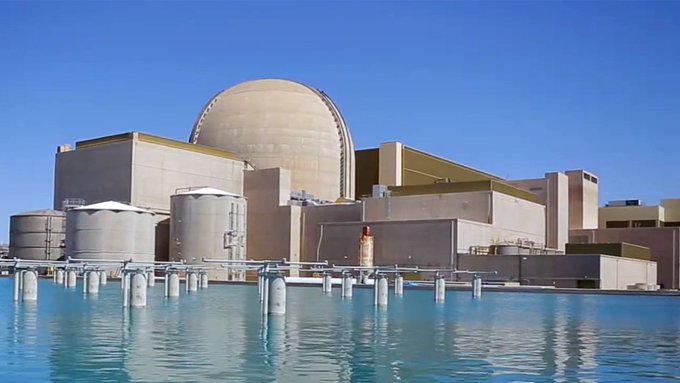


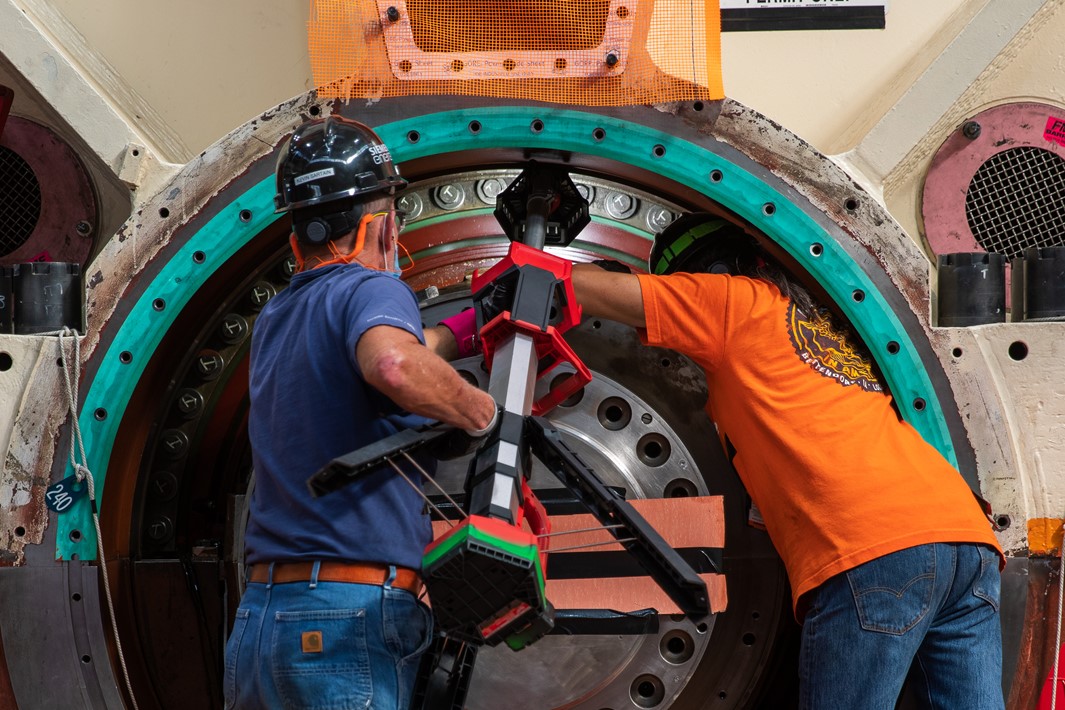
 The 2021
The 2021 

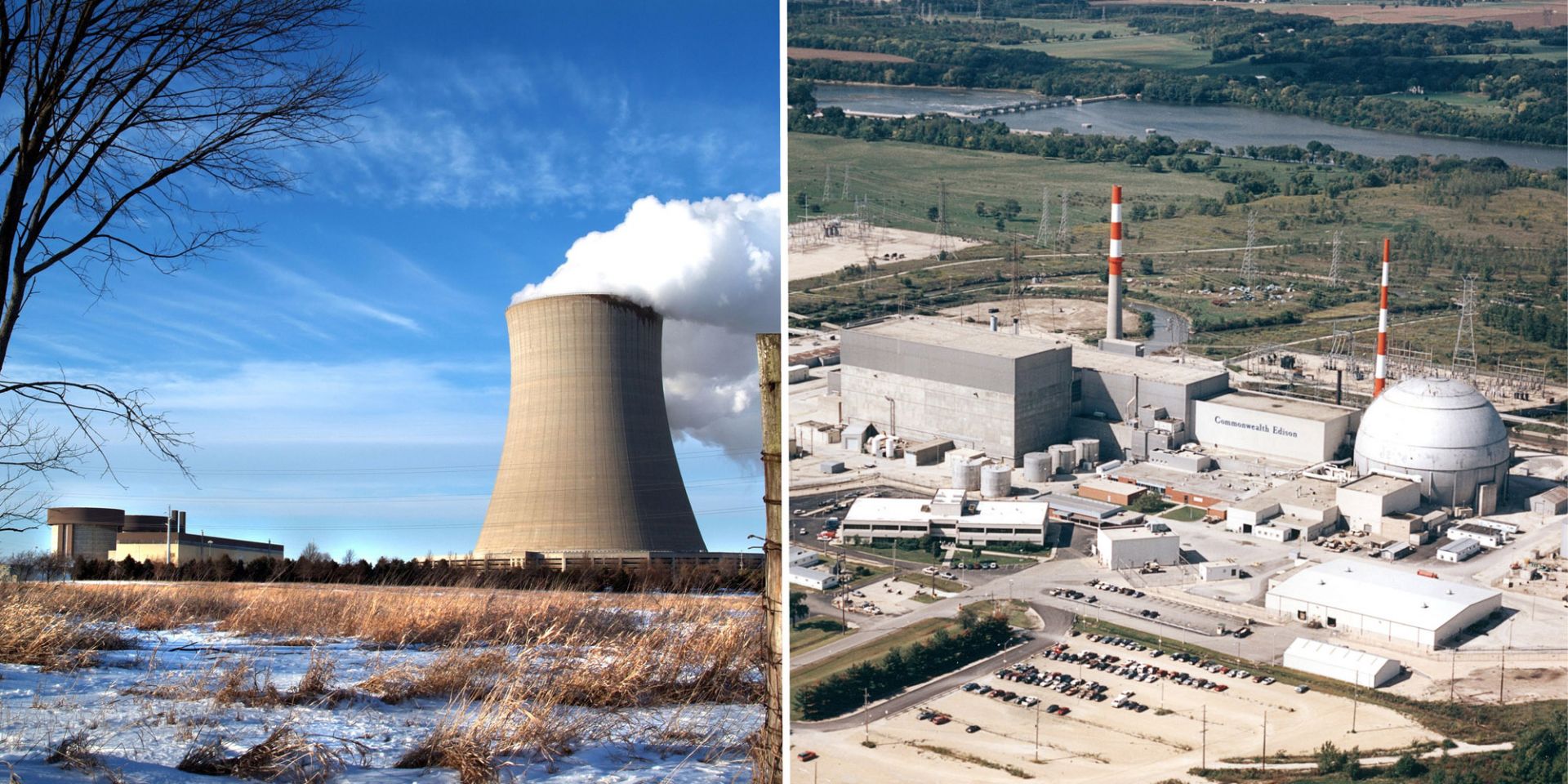
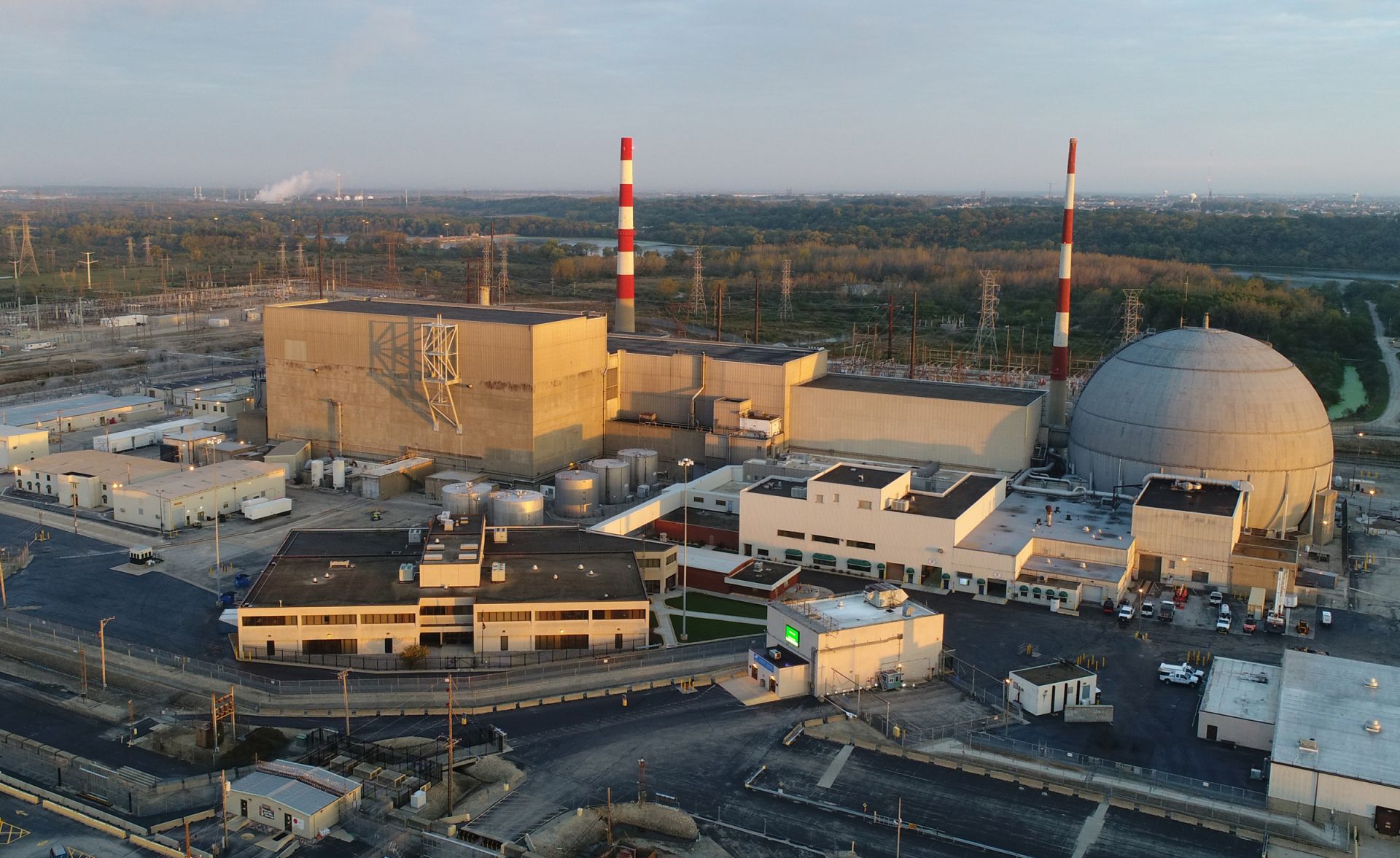
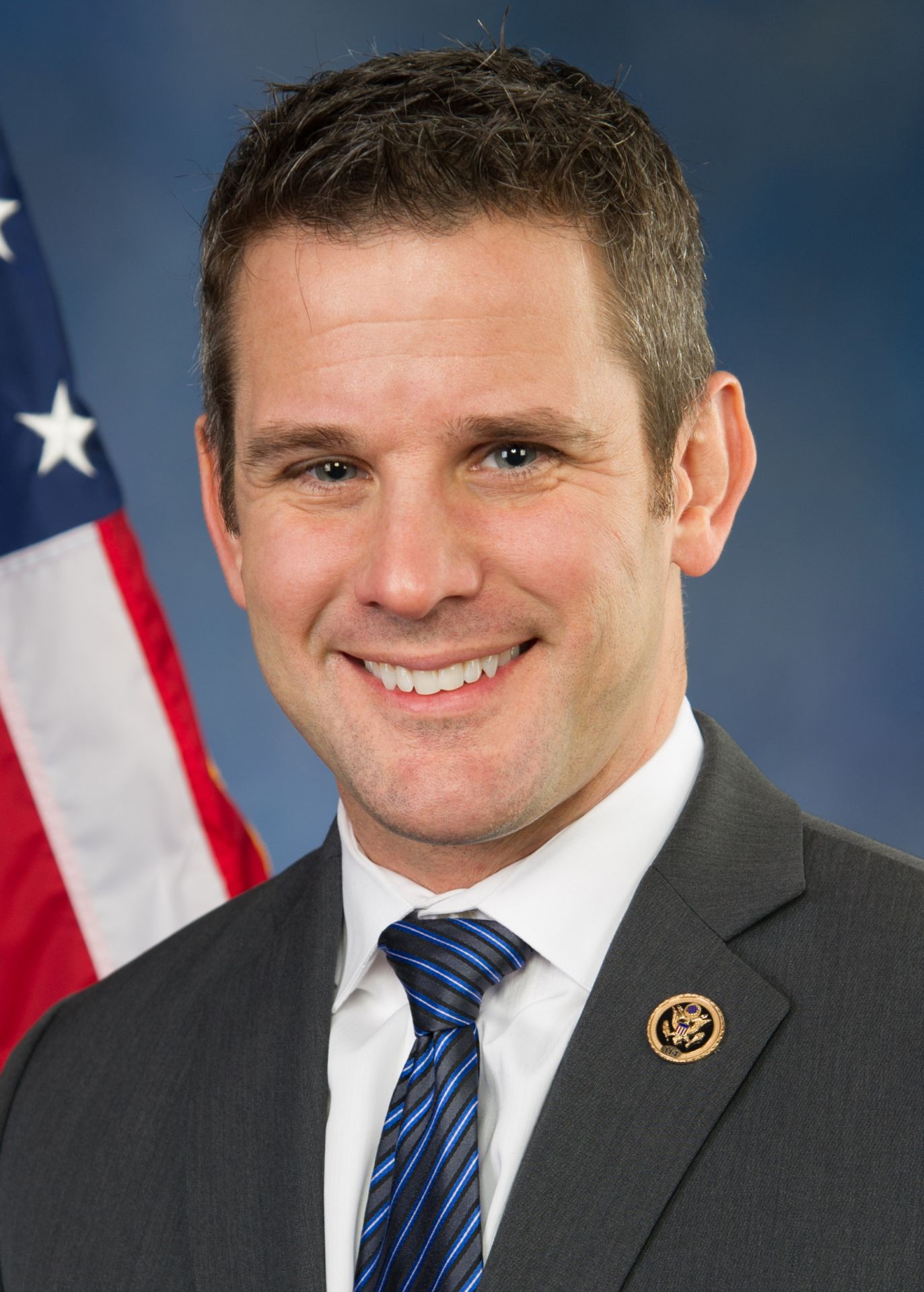






 Carbon dioxide emissions from the U.S. power sector fell 10 percent between 2019 and 2020, according to the 17th and latest edition of
Carbon dioxide emissions from the U.S. power sector fell 10 percent between 2019 and 2020, according to the 17th and latest edition of 